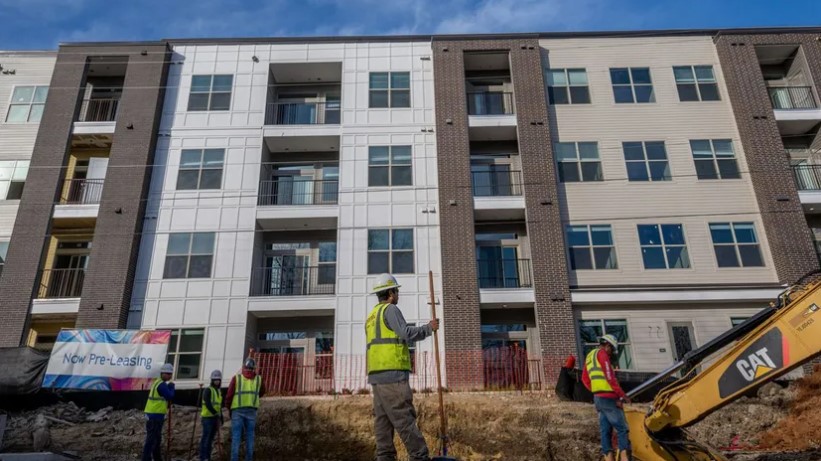Published by REALTOR.com | January 2, 2024
Relief for tenants has come from a surge in new supply that has pushed vacancy higher, making it harder for landlords to raise prices.
The apartment rental market finally stopped clobbering tenants with big price increases in 2023. That trend will likely continue in the new year, even as job growth and housing demand remain high in many parts of the country.
Relief for tenants has come from a surge in new supply that has pushed vacancy higher, making it harder for landlords to raise prices. Many tenants have also simply reached the limits of what they are able to pay after years of big rent hikes, housing analysts say.
“Affordability is at a really uncomfortable level for a huge swath of the American population,” said Jonas Bordo, chief executive of rental listings site Dwellsy.
Rents for new leases rose more than 20% during two years spanning 2021 and 2022. That growth moderated last year as rents either barely rose or slightly declined, according to most metrics.
Real-estate firms and data companies are projecting total rent growth in the very low single digits this year. Data provider Yardi Matrix predicts rents will rise 1.5%, while commercial-property firm CBRE estimates growth of 1.2%.
Despite the moderating of increases, the rental outlook remains bleak for many tenants. Last year, affordability for typical renters got worse, as it has every year since the pandemic began.
So-called renters by necessity, a broad cohort of tenants tracked by Yardi, now spend nearly 32% of their income on rent on average. The U.S. Department of Housing and Urban Development considers that share of earnings “cost-burdened.”
For most of the pandemic, landlords reaped huge profits from the double-digit rent increases they charged tenants. When rents were on a tear, owners also benefited from soaring values as investors spent record amounts on apartment buildings.
But that bull run for owners fizzled out last year as rents moderated. Investor appetite also has waned as higher interest rates have driven down values of all types of commercial property.
Sales of apartment buildings were down 68% in November, compared with the same month a year earlier, according to data provider MSCI Real Assets. Prices paid for apartment properties fell 12%.
Investment activity looks unlikely to rebound back to its recent heights, especially if borrowing costs remain high and potential buyers believe buildings still look overvalued.
New apartment supply, especially in large Sunbelt cities, also has damped investor interest while easing rent increases. This year brings more of it.


